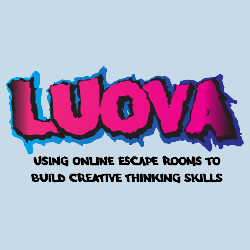Το πρόγραμμα MEDIS, το οποίο διενεργείται με τη στήριξη του Erasmus+ Key Action 3, δίνει την ευκαιρία στους εκπαιδευτικούς για πρόσβαση σε μια πλειάδα εργαλείων και καλών πρακτικών, μεταξύ αυτών και το καινοτόμο εγχειρίδιο του iDecide. Στην πλατφόρμα του MEDIS, οι εκπαιδευτικοί μπορούν να βρουν ενημερωτικό και εκπαιδευτικό υλικό για την πρόληψη και αντιμετώπιση φαινομένων κοινωνικού αποκλεισμού ευάλωτων ομάδων νέων στα σχολεία, ενώ από τον Σεπτέμβρη θα έχουν την ευκαιρία να επωφεληθούν από το εργαλείο που προσφέρει το iDecide.
Στο πλαίσιο του έργου iDecide αναπτύχθηκε ένα καινοτόμο εγχειρίδιο, καθώς και μια εισαγωγική σειρά μαθήματων, με στόχο να υποστηρίξει διευθυντές σχολείων, εκπαιδευτικό προσωπικό και φορείς χάραξης πολιτικής στην υλοποίηση τεκμηριωμένων πολιτικών, που μπορούν να οδηγήσουν στη μείωση των ανισοτήτων όσο αφορά στα μαθησιακά αποτελέσματα, αλλά και στη μείωση της περιθωριοποίησης ομάδων μαθητών. Εφαρμόζοντας το πρακτικό εγχειρίδιο σε 5 διαφορετικές χώρες, έγινε πλούσια συλλογή δεδομένων για την κατανόηση της πολυπλοκότητας του τρόπου με τον οποίο οι αποφάσεις που λαμβάνονται σε επίπεδο σχολικής μονάδας επηρεάζουν τις ομάδες μαθητών σε ρίσκο για περιθωροποίηση.
Καθ’ αυτό τον τρόπο, μέσα από τις εργασίες του έργου, οι εκπαιδευτικοί θα έχουν την ευκαιρία να συμμετάσχουν και να αξιοποιήσουν και πάλι τόσο το καινοτόμο εγχειρίδιο iDecide, όσο και το επιμορφωτικό του πρόγραμμα που έχει ως σκοπό να βοηθήσει τα σχολεία να εφαρμόσουν εκπαιδευτικές πρακτικές για ένα σχολείο χωρίς αποκλεισμούς εντός της σχολικής τους κοινότητας.
Για περισσότερες πληροφορίες μπορείτε να επικοινωνήσετε με την υπεύθυνη λειτουργό του προγράμματος κα. Κυριακή Γιακούπη στο kyriaki.yiakoupi@cardet.org ή στο 22002103.
MEDIS project: pedagogical proposals to avoid social exclusion
The MEDIS project, which is implemented with the support of the Erasmus+ Key Action 3 program, grants educators access to a wide array of tools and good practices, including the innovative iDecide toolkit. In the platform of MEDIS, educators can find informative and educational material for the prevention and tackling of phenomena of social exclusion of vulnerable groups in schools, while from September onwards they will once again have the chance to benefit from the whole spectrum of instruments iDecide affords.
Within the framework of the iDecide project an innovative toolkit and induction course to support evidence-based policy making that can lead to the reduction of disparities in learning outcomes and marginalization was developed, by supporting school leaders, school staff, and policymakers to engage in shared and inclusive decision making. By implementing the toolkit and collecting rich data from 5 different countries, there was a rich collection of data that helped to understand the complexity of how the decisions were taken at the school level and how these decisions affect student groups at risk of marginalization.
iDecide is an innovative tool that promotes inclusive policies and decision-making procedures in schools fostering the interaction between all the members of the school community (students and educators) to facilitate collective decision making and to ensure that marginalization of groups of students is avoided. MEDIS will re-utilize this tool, that has been successfully used in schools in 5 countries, as part of its efforts to promote and support social inclusion in schools.
Thus, through the workings of the project, educators will once again have the opportunity to take part and take advantage from the benefits of iDecide’s innovative toolkit, as well as participate in its educational programme that seeks to help schools to adopt education practices that help tackle exclusion in the school community.
For more information, you can contact directly with the responsible project manager, Ms. Kyriaki Yiakoupi at kyriaki.yiakoupi@cardet.org or at 22002103.












